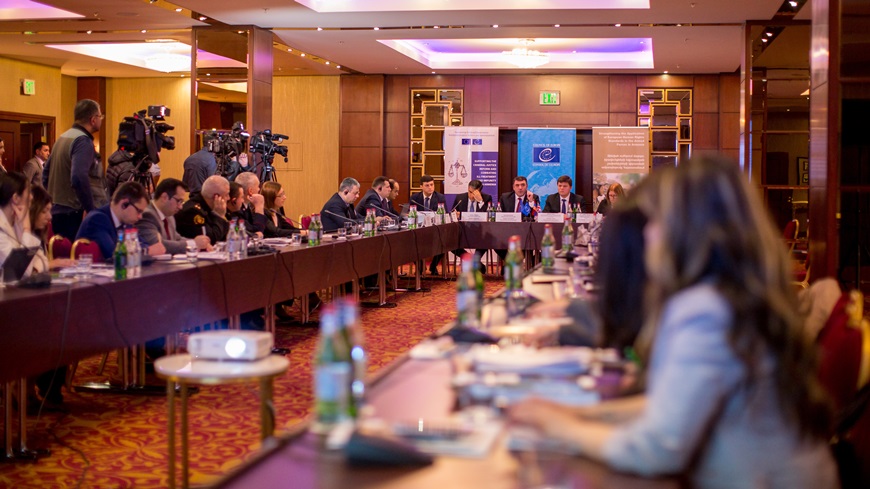On 20 and 21 March 2018, a Colloquy on the execution of judgments of the European Court of Human Rights (the Court) against Armenia concerning effective investigation of ill-treatment was organised by the Council of Europe in cooperation with the Ministry of Justice of the Republic of Armenia and the Representative of the Armenian Government before the European Court of Human Rights in Yerevan.
The Colloquy was dedicated to discussing the challenges encountered by Armenia in implementing general and individual measures indicated by the European Court of Human Rights in judgments against it as regards Article 2 (right to life), Article 3 (prohibition of torture) and Article 5 (right to liberty and security) of the European Convention on Human Rights (the Convention), and to practical steps and solutions that could be undertaken by the national authorities to comply with these judgments.
Mr Gevorg Kostanyan, the Representative of the Republic of Armenia before the European Court of Human Rights, Mr Arman Tatoyan, the Human Rights Defender of the Republic of Armenia, Mr Artak Asatryan, Deputy Minister of Justice of Armenia, H.E. Judith Margaret Farnworth, Ambassador of the UK to Armenia, Mr Mikhail Lobov, Head of the Human Rights Policy and Co-operation Department of the Council of Europe and Ms Natalia Voutova, Head of the Council of Europe Office in Yerevan addressed the participants at the opening session. The Colloquy gathered representatives of numerous stakeholders, among them the Armenian Ministry of Justice, Police, Ministry of Defence, Office of the Prosecutor General, the Investigative Committee, Human Rights Defender’s Office and the judiciary, as well as the representatives of the Council of Europe’s Department for the Execution of Judgments of the European Court of Human Rights and international experts.
A lively discussion focused on six groups of judgments of the Strasbourg Court against Armenia such as Zalyan and others, Virabyan and Muradyan. Among others, the following issues were raised:
The obligation of the State to reopen a case following a European Court’s judgment establishing a violation of a right set forth by the Convention;
The criteria of an “effective investigation” set out in the Court’s case law;
Payment of compensation to victims of ill-treatment;
The requirement of Article 5 of the Convention addressed to domestic courts to substantiate detention orders on clear and concrete grounds.
The event was made possible by the generous financial support of the EU and the UK through two cooperation projects implemented by the Council of Europe in Armenia – “Strengthening the application of European human rights standards in the armed forces in Armenia” (funded by the UK Government’s Conflict, Stability and Security Fund – CSSF, and the Council of Europe) and “Supporting the criminal justice reform and combating ill-treatment and impunity in Armenia” (funded through the European Union and Council of Europe Partnership for Good Governance).



